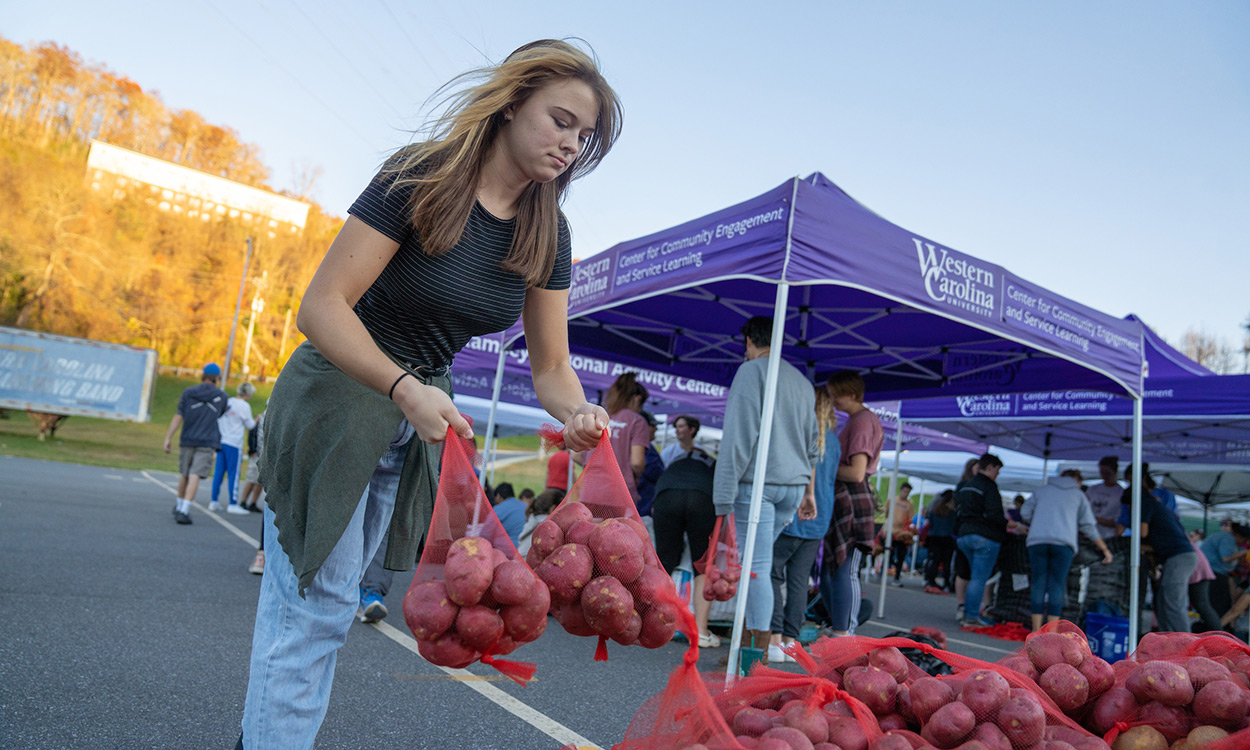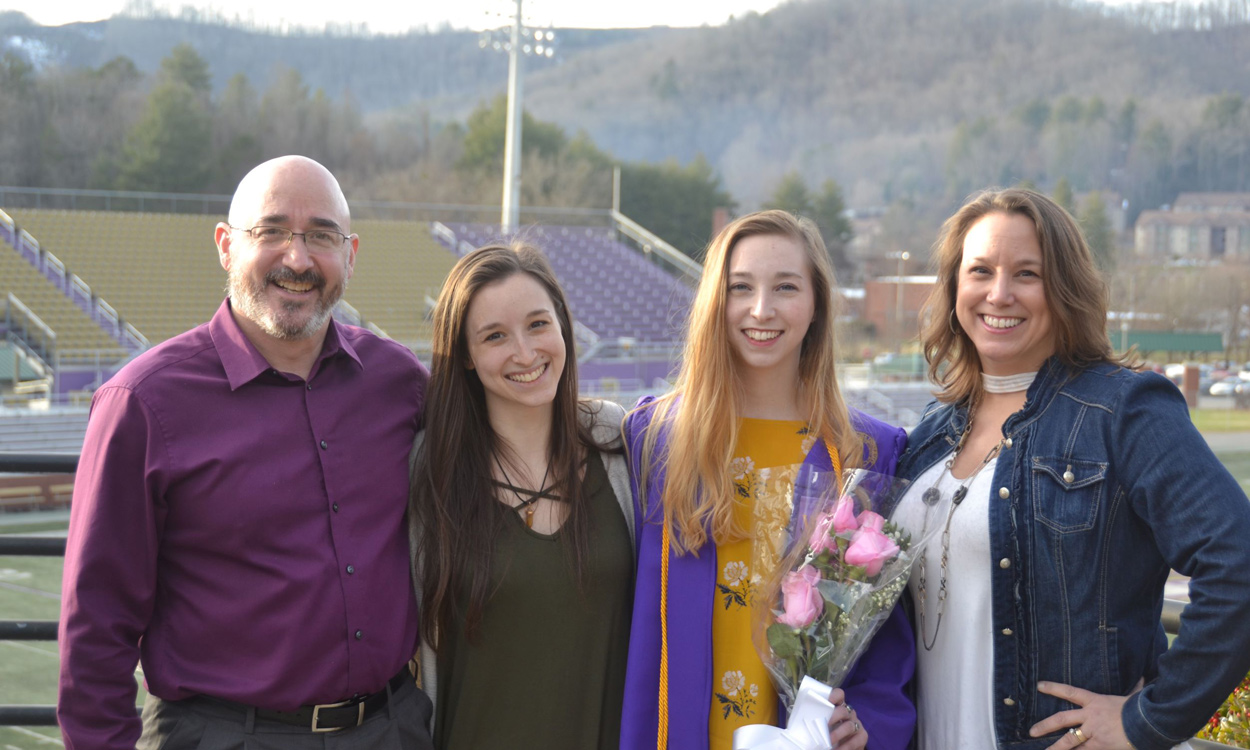Inaugural 1889 Impact Grants Program provides support for 11 projects at WCU

The Center for Civic Engagement and Service Learning held a day of service for members of the Pride of the Mountains Marching Band to fill 4,000 bags with potatoes from eastern North Carolina for distribution to WNC food pantries at Thanksgiving.
Eleven projects ranging from student research into post-partum depression in partnership with the Mountain Area Health Education Center to improvements of a Cherokee plant garden at Highlands Biological Station are underway at Western Carolina University, thanks to support from the recently launched 1889 Impact Grants Program.
The program was created last year by the Division of Advancement to provide a consistent source of funding for colleges and other units at WCU in support of initiatives that enhance the engagement of alumni and community stakeholders to the philanthropic activities of the university.
Funding for the program comes from contributions by members of the 1889 Club, which recognizes donors for gifts made on an annual basis to the Fund for WCU. The club, among four giving societies established by the Division of Advancement to celebrate the impact of philanthropy on the institution, is named in honor of the year of WCU’s founding. The 1889 Club encompasses those who make annual gifts in amounts ranging from $18.89 for current students and $188.90 for alumni who have graduated within the last decade to $1,889 for alumni who graduated more than 10 years ago.
A committee composed of members of the WCU Foundation Board of Directors reviewed applications from across the university, selecting 11 projects to receive a total of $40,000 in funding as part of the 1889 Impact Grants Program’s inaugural year, said Ben Pendry, assistant vice chancellor for development.
“We are quite pleased with the number and quality of projects seeking support through the 1889 Impact Grants Program,” Pendry said. “While we could not provide funding for all the applicants, we encourage our campus partners to apply again next year, and we are looking forward to seeing the outcomes of this year’s efforts.”
Projects supported by the program are:
- Research conducted by WCU psychology students in conjunction with MAHEC into post-partum depression and related mental health issues as part of an effort to improve health care and the quality of life in Western North Carolina.
- A new publication highlighting the David O. Belcher College of Fine and Performing Arts aimed at alumni of the college and intended to inspire connections and future contributions.
- A Friends of the Arts off-campus “salon” event to highlight the Film and Television Production Program and allow community members to interact with students and faculty.
- A day of service sponsored by the Center for Civic Engagement and Service Learning for members of the Pride of the Mountains Marching Band to fill 4,000 bags with potatoes from eastern North Carolina for distribution to WNC food pantries at Thanksgiving.
- A survey of all graduating students – both undergraduate and graduate – by the Center for Career and Professional Development to collect success stories and career outcomes information.
- A “community crowdsourcing” effort by Hunter Library’s Special Collections unit to provide residents of WNC opportunities to share personal stories and help fill in blanks of existing information in the collections.
- A Catamount Club initiative to collect and share stories of current student-athletes, former student-athletes and supporters of WCU intercollegiate athletics.
- Improvements including new plants and interpretative signage for the Cherokee gardens and exhibit at Highlands Biological Station.
- Honors SAIL (Students and Alumni Intersections and Legacies), a networking effort connecting current students of the Brinson Honors College with alumni of the college.
- An alumni speaker series and parent programming for WCU’s Project CARE, which seeks to improve academic performance and the retention of underrepresented students
- An Intercultural Affairs student leadership conference held in connection with the university’s observance of the Martin Luther King Jr. holiday.
“Each year, members of the 1889 Club will receive a report demonstrating the impact of their philanthropy on the university,” Pendry said. “We believe strongly in the ability of this program to touch all areas of the university. Our goal, now that we have the infrastructure in place, is to grow the membership in the 1889 Club so that we can fund more requests.”
In addition to the 1889 Impact Grants Program, the Fund for WCU provides first-year access scholarships to new incoming freshmen and supports ongoing stewardship efforts such as thank-you events, printing and mailing of donor materials, and video messaging.
Applications for 1889 Club Impact Grants will open annually in August and will be reviewed by the WCU Foundation Board at its October meeting. Recipients will be notified of their awards in November and funds will be transferred to the department by Jan. 15 of the next year.
For more information including how to join, visit https://www.wcu.edu/engage/give-to-wcu/giving-societies/1889-club.aspx.

